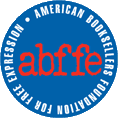- Categories:
Free Expression Victory in Indiana: Judge Strikes Down Bookstore Registration Law
 On Tuesday, July 1, a federal judge struck down an Indiana law requiring bookstores and other retail establishments that sell even a single "sexually explicit" book, magazine, video, or recording to register with the state and pay a $250 license fee. Judge Sarah Evans Barker declared in a written opinion: "Clearly, a vast array of merchants and materials is implicated by the reach of this statute as written. A romance novel sold at a drugstore, a magazine offering sex advice in a grocery store checkout line, an R-rated DVD sold by a video rental shop, a collection of old Playboy magazines sold by a widow at a garage sale -- all incidents of unquestionably lawful, non-obscene, non-pornographic material being sold to adults -- would appear to necessitate registration under the statute."
On Tuesday, July 1, a federal judge struck down an Indiana law requiring bookstores and other retail establishments that sell even a single "sexually explicit" book, magazine, video, or recording to register with the state and pay a $250 license fee. Judge Sarah Evans Barker declared in a written opinion: "Clearly, a vast array of merchants and materials is implicated by the reach of this statute as written. A romance novel sold at a drugstore, a magazine offering sex advice in a grocery store checkout line, an R-rated DVD sold by a video rental shop, a collection of old Playboy magazines sold by a widow at a garage sale -- all incidents of unquestionably lawful, non-obscene, non-pornographic material being sold to adults -- would appear to necessitate registration under the statute."
"Judge Barker's decision is a resounding victory for the First Amendment rights of booksellers and their customers," said American Booksellers Foundation for Free Expression President Chris Finan. In May, ABFFE, Big Hat Books of Indianapolis, Boxcar Books and Community Center of Bloomington, and the Great Lakes Booksellers Association had joined with publishers and other free expression groups in a lawsuit challenging the law.
Big Hat owner Liz Houghton Barden told BTW that she was relieved by the judges ruling and thankful to ABFFE for leading the fight. "Out here in Indiana all eyes and all media were focused on a big property tax issue, and nobody picked up that [the Bookstore Registration Law] was going through the House," said Houghton Barden. "It was Chris Finan who threw up the red flag. He orchestrated everything -- the ACLU and Ken Falk [an attorney for the ACLU of Indiana]. I always checked the little box on the ABA dues form that asks for a $50 donation to ABFFE. I just did it, never understanding how much I would need it someday."
Judge Barker agreed with the plaintiffs' contention that the law would have a chilling effect on the sale of constitutionally protected works. To avoid being labeled an "adult" store, retailers would have been forced to suppress the sale of almost all works with sexual content. "There can be no doubt that compliance with such a vague mandate will be unduly burdensome, will have a chilling effect on expression, and will fail to provide ordinary people with a reasonable degree of notice as to the law's requirements; the Constitution demands no less," Barker said. (The opinion is online at www.abffe.com.)
Other plaintiffs in case are the Association of American Publishers, the Entertainment Merchants Association, the Freedom to Read Foundation, the National Association of Recording Merchandisers, the American Civil Liberties Union of Indiana Foundation, the Indiana Museum of Art, and the Indianapolis Downtown Artists and Dealers Association. They are represented by Michael A. Bamberger of Sonnenschein, Nath and Rosenthal. Bamberger is general counsel of Media Coalition, a legislative and legal watchdog on First Amendment issues for producers and distributors of media, including books, magazines, recordings, videos, and video games.
The State of Indiana, which conceded that the registration was "badly drafted" in spots, has 30 days to decide whether to appeal Barker's decision. The plaintiffs will seek reimbursement of the money they have spent for attorneys' fees, and an unsuccessful appeal will only cost Indiana taxpayers more money.
This is not the first time that Barker has ruled in a First Amendment case brought by booksellers. In 1984, in her first case as a judge, Barker, who was appointed by Ronald Reagan, struck down an Indianapolis anti-pornography law drafted by Catharine MacKinnon and Andrea Dworkin. Her decision in the case, American Booksellers Association v. Hudnut, was affirmed by the Seventh Circuit Court of Appeals and the U.S. Supreme Court.

